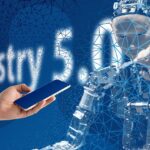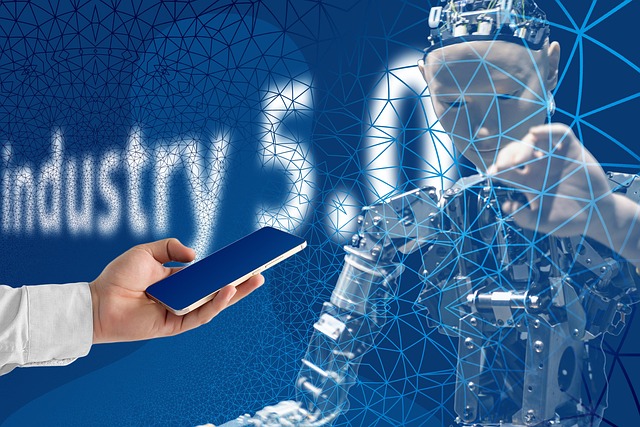# The Evolution of AI Technology: How Intelligent Machines Are Shaping Our Future Landscape
Artificial Intelligence (AI) has transitioned from a niche field of computer science to a pivotal component of modern society, influencing various sectors and reshaping our daily lives. This evolution has been driven by rapid advancements in algorithms, computing power, and the availability of vast amounts of data. As we delve into the transformative journey of AI, it becomes clear that intelligent machines are not merely tools; they are becoming integral partners in our quest for innovation and efficiency.
## The Historical Context of AI Development
To appreciate the current landscape of AI technology, one must first understand its historical roots. The concept of artificial intelligence dates back to the mid-20th century, with pioneers like Alan Turing and John McCarthy laying the groundwork for what would become a revolutionary field. Turing’s seminal work on computation and the Turing Test provided a framework for assessing machine intelligence, while McCarthy’s coining of the term “artificial intelligence” in 1956 marked the official birth of the discipline.
Over the decades, AI has experienced cycles of hype and disappointment, often referred to as “AI winters,” during which funding and interest dwindled due to unmet expectations. The initial approaches focused heavily on symbolic reasoning and rule-based systems, which proved limited in their ability to handle the complexities of real-world scenarios. However, the resurgence of AI in the 21st century can be attributed to several key factors, including the advent of machine learning and deep learning technologies, which have enabled machines to learn from data rather than relying solely on pre-programmed rules.
In recent years, the proliferation of big data has played a crucial role in advancing AI capabilities. As organizations began to collect and store vast amounts of information, the potential for AI to analyze and extract insights from this data became increasingly apparent. Consequently, industries such as healthcare, finance, and transportation have begun to harness the power of AI to drive decision-making, enhance efficiency, and improve outcomes.
## Current Applications of AI Technologies
Presently, the applications of AI are both diverse and impactful, permeating various aspects of our lives. One of the most notable areas of AI implementation is in healthcare, where intelligent machines are being used to assist in diagnostics, treatment planning, and patient management. For instance, AI algorithms can analyze medical images with remarkable accuracy, identifying anomalies that may be missed by human radiologists. Furthermore, predictive analytics powered by AI can help healthcare providers anticipate patient needs, ultimately leading to improved care and resource allocation.
Beyond healthcare, the financial sector has also embraced AI technologies to streamline operations and enhance customer experiences. Automated trading systems leverage AI algorithms to analyze market trends and execute trades at optimal times, minimizing risk and maximizing returns. Similarly, AI-driven chatbots are revolutionizing customer service by providing instant support and personalized recommendations, thereby improving overall customer satisfaction.
In the realm of transportation, autonomous vehicles represent one of the most ambitious applications of AI technology. Companies like Tesla, Waymo, and others are developing self-driving cars that utilize AI to navigate complex environments, recognize obstacles, and make split-second decisions. As regulatory frameworks evolve and technology matures, the potential for widespread adoption of autonomous vehicles could transform urban planning, reduce traffic accidents, and alleviate congestion.
## The Future Implications of AI Integration
Looking ahead, the integration of AI into various sectors raises important considerations regarding ethics, employment, and societal impact. As intelligent machines become more capable, the question of job displacement looms large. While AI has the potential to automate repetitive tasks and enhance productivity, it also poses a risk to certain job categories, particularly those that involve routine manual or cognitive labor. However, history suggests that technological advancements often lead to the creation of new job opportunities, requiring a shift in skills and education.
Moreover, ethical considerations surrounding AI development and deployment cannot be overlooked. Issues such as data privacy, algorithmic bias, and accountability are paramount as organizations increasingly rely on AI systems for critical decision-making. Ensuring that AI technologies are developed and implemented responsibly will require collaboration among technologists, policymakers, and ethicists to establish guidelines and frameworks that promote fairness and transparency.
As AI continues to evolve, the potential for innovation is boundless. Emerging fields such as explainable AI aim to make machine learning models more interpretable, allowing users to understand the rationale behind AI-generated decisions. Additionally, advancements in natural language processing are enabling more sophisticated interactions between humans and machines, paving the way for more intuitive user experiences.
In summary, the evolution of AI technology is a multifaceted journey that has significantly impacted our world and will continue to do so in the future. From its historical roots to its current applications and future implications, AI stands as a testament to human ingenuity and the relentless pursuit of knowledge. As we navigate this evolving landscape, it is imperative that we embrace the opportunities presented by intelligent machines while remaining vigilant about the challenges they bring. By fostering a collaborative approach, we can harness the full potential of AI to create a future that benefits all of humanity.











